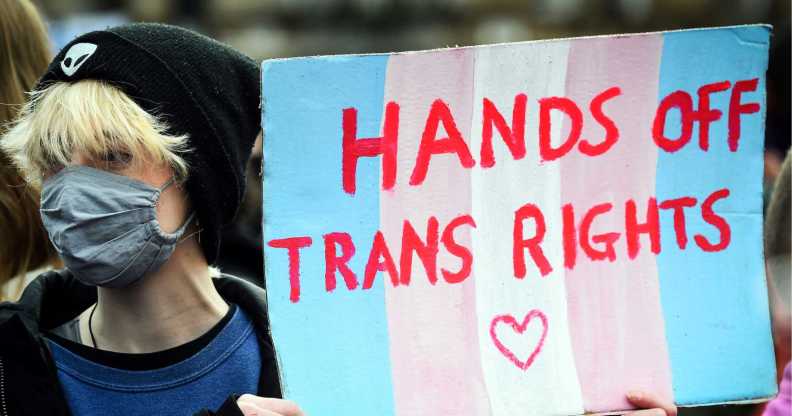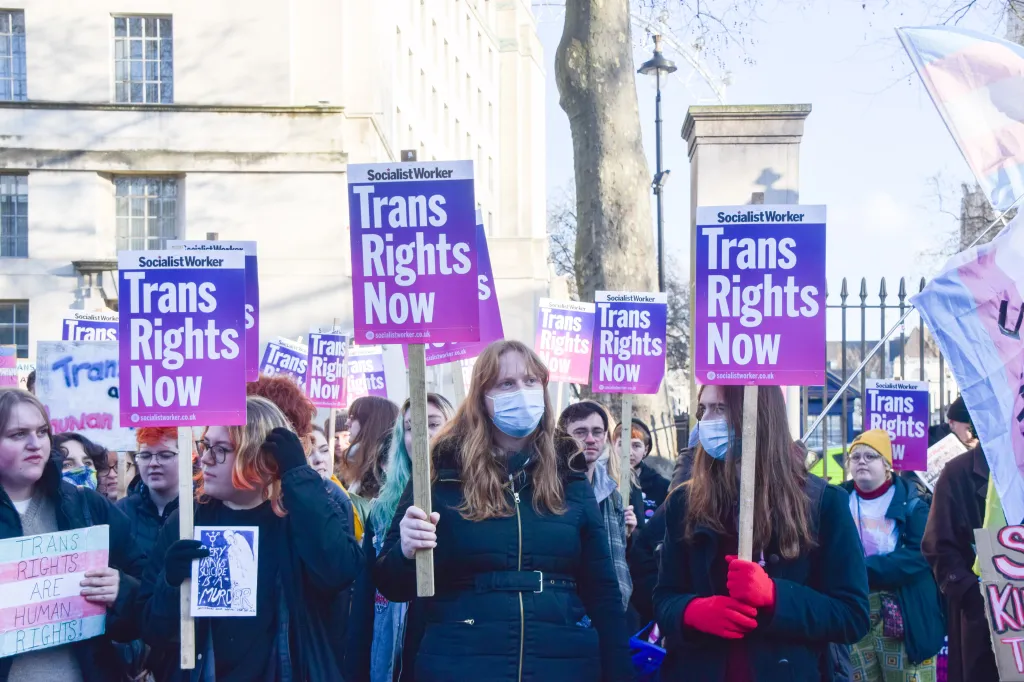Gender critical group For Women Scotland lose, again, in latest anti-trans court case

For Women Scotland has lost its appeal at the Court of Session (ANDY BUCHANAN/AFP via Getty Images)
For Women Scotland has lost its appeal at the Court of Session (ANDY BUCHANAN/AFP via Getty Images)
Not for the first time, a Scottish court has decided that the definition of “woman” includes transgender women who have a Gender Recognition Certificate (GRC). The latest ruling comes after an anti-trans group sought to overturn an earlier decision.
Anti-trans campaign group For Women Scotland (FWS) brought the appeal following a decision by Lady Haldane in 2022, in which she which ruled that legislation aimed at improving gender balance on public boards includes trans women.
The original case was brought by FWS in relation to the 2018 Gender Representation on Public Boards Act. The legislation calls for 50 per cent of non-executive members of public boards to be women – including transgender women.
Trans women who have a GRC “possess the protected characteristic of sex according to the terms of their GRC”, lord justice clerk Lady Dorrian said in her ruling on Wednesday (1 November), upholding Lady Haldane’s decision.
“Individuals without a GRC, whether they have the protected characteristic of gender reassignment or not, retain the sex in which they were born [and there is no] conflation of the protected characteristics is involved.
“A person with a GRC in the female gender comes within the definition of ‘woman’ for the purposes of section 11 [sex] of the Equality Act, and the guidance issued in respect of the 2018 Act is lawful.”

In a statement published on the group’s website, For Women Scotland said it was disappointed by the judgement, before descending into anti-trans claims about “men who have obtained a GRC”.
In 2022, Lady Haldane said the Equality Act protects rights based on sex but the definition of “sex” is just restricted to someone’s biological birth sex.
A trans woman having a GRC “does not offend against, or give rise to any conflict with, legislation where it is clear that ‘sex’ means biological sex”, she added.
The latest ruling comes as tensions rises over trans rights in Scotland. In December, the devolved nation passed its landmark gender reform law, but the UK government used a Section 35 order to prevent it gaining Royal Assent.
A court battle over the legitimacy of the use of the order concluded last month, but a ruling is yet to be published.

